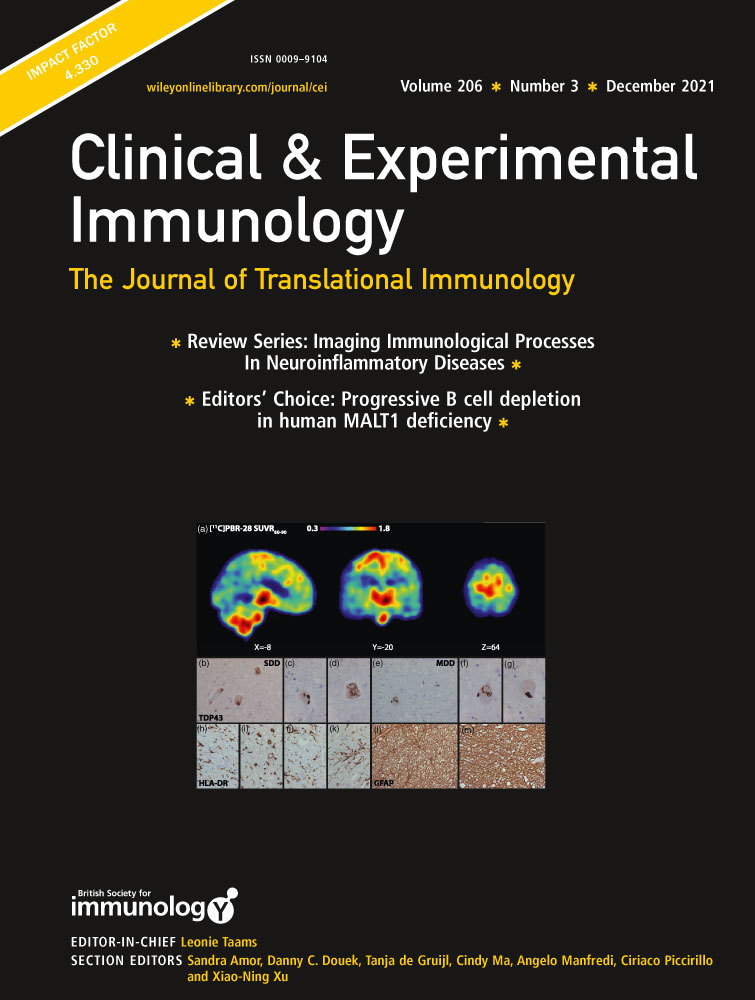Cytolytic activity in T cell clones derived from human synovial rheumatoid membrane: inhibition by synovial fluid
SUMMARY
A panel of T cell clones was derived from the synovial membrane of a patient with rheumatoid arthritis (RA). We investigated whether T cell clones with cytolytic properties were present and whether T cell cytotoxicity was influenced by the presence of synovial fluid. These issues were studied using anti-CD3 and lectin-induced cytotoxicity assays. The majority of the T cell clones derived from the synovial membrane showed cytotoxic properties although non-cytotoxic clones were also found. Three clones (N11, N6 and N15) showed strong cytotoxicity (more than 40% lysis at an effector-to-target cell ratio of 10:1) whereas three clones (N16, N4 and N14) were non-cytotoxic (less than 20% lysis at an effector-to-target cell ratio of 10:1). The induction of cytotoxicity in the anti-CD3-driven system was shown to be dependent on the dose of anti-CD3 present. When synovial fluid was added to these assays a strong inhibition of cytotoxicity was found. This inhibition of cytotoxicity was found with synovial fluid samples of RA patients, as well as with non-RA synovial fluids. Both anti-CD3 and lectin-dependent cytotoxicity assays were strongly inhibited. In conclusion, T cell clones with cytotoxic activity can be isolated from rheumatoid synovial membrane. In the presence of synovial fluid these cytotoxic cells are inhibited to exert their cytotoxic function.




